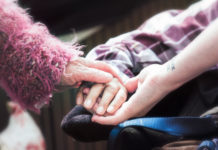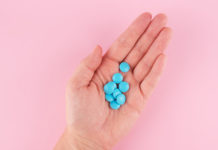Tower of Babel: The Meaning and Purpose of Voicehearing and Psychosis
A bottomless well of ideas and stories and seeming fantasies emerges from the mouths of voicehearers, psychotics, and schizophrenics. Is anyone taking the time to actually listen?
Growing Good Mental Health with Choice Theory
On those days when I’m experiencing discomfort, anger or frustration, I ask myself: Which need is not being adequately met and which is driving my discontent?
Compassion and Understanding Versus Drugs and Disease: Where Does Humanistic Psychology Stand Now?
Authors with lived experience of extreme states present a humanistic contrast to psychiatry.
Beyond the Buzzwords: What Does Trauma-Informed Care Truly Mean?
Rethinking Psychiatry's March meeting was a rich discussion of what "trauma-informed care" means. It is an important idea, but can be an empty buzzword. Our goal was to have a deeper, more meaningful conversation on what this term really means. A diverse group from the local community attended and we had a really interesting, thoughtful discussion.
The Cochrane Tapes Reveal a Horrendous Show Trial Against a Critic of Psychiatry
Why did Cochrane expel one of its best known scientists, who had helped get Cochrane started and bolstered its reputation? What happened that day?
Unheard Voices: Carlton Brown
In the first installment of MIA's Unheard Voices series, Carlton Brown talks about his life, living on the streets, the psychiatric system, and survival.
The Faulty Reasoning That Turned ADHD Into a Disease
Leading ADHD researchers outline four mistakes that turned ADHD from a description of behavior into a medical disease.
SSRI Antidepressants Do Not Improve Depression After a Stroke
A study in JAMA Neurology finds that antidepressants do not reduce depression symptoms more than placebo in patients recovering from a stroke.
Much of U.S. Healthcare Is Broken: How to Fix It (Chapter 1, Part 2)
Les Ruthven addresses off-label prescribing as well as physicians’ anti-science pushback against the use of well-conducted clinical trials.
Service Users Report Psychiatric Professionals as the Least Helpful Factor in Quitting Antipsychotics
A new study published in Psychology and Psychotherapy: Theory, Research and Practice finds that psychiatrists and other doctors are the most unhelpful factor for...
“Beware, Scientology Related”: How ADHD Experts Silence Criticism
We do not belong to the scientology movement, but this false accusation triggered an email correspondence that exposed the problematic happenings usually behind closed academic curtains.
Peer Support Reduces Chances of Psychiatric Readmission
A randomized control trial finds that receiving peer support from individuals with similar lived experiences reduces one’s risk of readmission to an acute crisis unit.
The Never Ending Story: How 2nd Story Respite House Was Saved
We had built relationships with provider and peer organizations and NAMI. We had learned how to interface with the system and share the peer perspective. Ultimately, our relationships saved us. We had worked to start our own organization with the same providers who now were in position to step forward in our defense.
I Am Looking for People I Miss
It’s a community of like-minded people; we should stick together. Maybe, hopefully, I will find my hospital friends.
Getting A Diagnosis Meant That My Sister Never Had the Chance to Resolve Her...
My sister was told if she took medications everything would be fine. But everything was not fine, and the medications sent her down a path of no return.
How Long Does Antidepressant Withdrawal Last?
The patient experiencing the pain of withdrawal believed that they would feel better when they stopped taking their antidepressants. After all, they’re under the care of a board-certified medical professional who has vowed to do no harm. But despite those reassurances, they find themselves in a world of hurt.
The Cochrane Collaboration Has Failed Us All
The "independent report" that investigated the complaints against Peter Gøtzsche (which included a complaint from E. Fuller Torrey) reveals that they arose in connection with his criticisms of psychiatric drugs. The Cochrane Collaboration's ouster of Gøtzsche betrays a commitment to open-minded science that is vital to serving the public good.
Parental Conflict Changes Emotion Recognition in Children, Study Finds
Study suggests interparental conflict causes lasting damage in the way children are able to recognize and process emotions.
More to Happiness Than Feeling Good, Study Finds
Cross-cultural data suggest that happiness involves feeling the emotions one deems as right, in accordance with personal and cultural values.
The APA’s Apology for Racism Omits Psychiatry’s Essential Bigotry
Psychiatry has acknowledged its history of racism, but can they ever acknowledge that the entire edifice is built on fundamental bigotry?
Open Dialogue: Does the Current Research Data Support Further Investment?
A leading US journal published an extensive literature review and analysis of currently available research on Open Dialogue. An accompanying commentary concludes, “The present data on Open Dialogue are insufficient to warrant calls for further research on the program other than those projects that are currently under way.”
INTAR India 2016: Community Development and Human Liberation
We are here to challenge how this thing called madness and mental health is in fact a reflection and a relationship, to redefine how society responds, and to insist that in the definition of madness we also see a reflection of the society looking at it.
My Involuntary Metamorphosis
After day treatment, I went once a week to a “continuing care” group. What was “continued” was the lesson that you had a fault that was shameful, volatile and dangerous.
Mental Disorder Has Roots in Trauma and Inequality, Not Biology
The scientific evidence is of social/psychological, not biological, causation: negative environmental conditions, not disease.
10 Reasons Why Psychiatry Lives On—Obvious, Dark, and Darkest
No matter how clearly the scientific case is made that psychiatry is a pseudoscientific institution, it continues to retain power. When we recognize that scientific truths alone are not setting society free, we begin to shift our energy to different strategies.

































